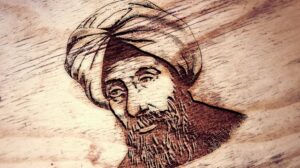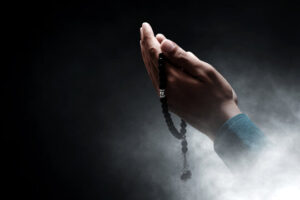
Faith Speaking to the G20
By Ambassador Ebrahim Rasool
Last year in Brazil at the Interfaith Forum of the G20, I raised how faith communities often have moral clarity – sometimes righteously speaking truth, sometimes self-righteously posturing without action or in defence of the indefensible. But religions often struggle to find the moral courage to do what moral clarity demands once it pierces our conscience. What is courage how do we manifest it in a world of conflict and vulnerability?
Emmanuel Kant, for me, understood courage best when he posits that courage is not the opposite of cowardice; recklessness is the opposite of cowardice. Courage is the perfect middle, because it has the ability to call out the cowards and bring them to action in a time of danger, and at the same time to have the courage to diminish excessiveness, diminish extremes, diminish recklessness, and bring those who peddle them to the middle. So, our courage means our ability to speak to both sides of the equation: to those who are morally coward and ultra-cautious in the face of power where they should be standing up, and those who are morally reckless, excessive, and extreme when they should be measured and balanced.
The spirit of Ubuntu provides the thematic coherence for our gathering. You have heard all the definitions: I am because you are; we are people through other people; we are interdependent; we have a common humanity! Ubuntu, in a very real way, is the soft power that South Africa presents in a hard world. It reflects the idea that human beings are interdependent despite the differences of race, language, or religion; that we are interdependent; and therefore, our humanity is what defines us, drives us, and binds us together.
But Ubuntu has a hard edge, because it is founded also in the words of the scripture, that says we are each other’s keepers. We are responsible and accountable to each other, and that is the art of speaking truth, to both sides of the equation, the powerful and the very angry.
Therefore, when we have our demons as Muslims (like those who appropriate our faith for extremism), on the one side of the equation, we need to call them out. And when you have your demons (those who appropriate your faith for nefarious goals) Ubuntu demands that you call them out, so that the world finds its equilibrium, and religion is a beacon of equilibrium, not the religion of an ideology.
Inspired by the Quran, in the dark days of Apartheid, that declares that ‘Allah, God, has shown us the two ways, but that people are not making haste on the path that is steep and difficult. How can God describe what this difficult path is?’ And in describing the difficult path, it is not the path of praying, of fasting only. It is the path of freeing in the days of slavery, feeding in the days of hunger, embracing the stranger, looking after those who have been de-parented.
Then you are those who believe. Belief is contingent on those humane acts. Then you are of those who do good, as good is defined by that courage. Then you are people of truth, that you stand up for truth irrespective of its discomfort to you; then you are people of compassion. Those are the things that we need to be in the days of hunger, in the days of marginalization.
What we need to be able to do, in these days, is to define what interfaith is. For some, interfaith is an opportunity for competitive faith: how good is your religion versus mine? How do I get adherents from you or prevent you from you getting adherents from me? For some faith, interfaith is comparative: we pray like this, and you pray like that, and there’s merit in that. For others, faith is cooperative: let’s work together on this campaign, shoulder to shoulder, etc. All of that is good.
But when faith itself is staring down the barrel [of a gun], then faith needs to be collaborative. When faith and religion is both the doctor and the patient, then it admits its own vulnerability as a phenomenon in this world. And it says, let’s hold hands together, because we are fighting an existential battle for faith and religion itself, as we fight the issues on both sides of the equation.
And so, when we embark on that collaborative work, we begin to seethe obvious vertical divides between Muslim, Christian, Hindu, Jew, non-believer, … Those vertical divides are very easy to see, but within those vertical divides, as we found out in the anti-Apartheid struggle, are also horizontal divides that bring some of us closer across vertical divides. Some of us, across all our religions, are so orthodox that we are in a state of inertia. Some of us are so extreme that we become a nihilistic phenomenon, destructive in the name of our religion. Some show more commonness with their mirror image in other religions than with their co-religionists. And some of us are the middle ground, the people who find meaning in doing the work of God amongst the people of God, demanded by today’s context of conflict and vulnerability.
Last year’s predictions have become matters of urgency today. The looming populism predicted last year in Brazil has become the mainstreamed extremism of today, manifesting itself across the world. Last year’s differences trying to coexist, have now become divisions. Last year’s about emergent tensions have become full blown conflicts this year. The vulnerable last year have become the victims of massacres and starvation. Fears t have become intolerances. Migrants looking for peace and well-being in the world have become the deported, the outcast, and the discarded. The idea of populism is the populism with fingers on the buttons that defund health programs, that fund wars, with an impunity that can do whatever it wants with permission from the world.
Religion must act in the name of faith, drawing from its deep and profound spiritual resources. Religion cannot appeal to the powers that be because they themselves are often compromised by their interests in a world where trade wars become pernicious, manifestations of the will of a person or a government. The ears that are waiting for us are the ears of the people of the world. We have seen the campuses rise against the capitals. We have seen the streets become restless against their palaces. We have seen the ordinary people begin to speak. And while we appeal to, or appease, the powerful, we ignore those who really want our guidance, who want to believe again, who want to understand the manifestation of God, and the closest they will come is to find it in the churches, the mosques, the synagogues, the temples from which we preach.
They will reclaim their faith as a force for good and manifest it in good works. And if we compromise because we need to be good with our governments, and we need to escape their surveillance, then we have compromised on the very truth that the world needs.
And if we can’t do it, who will?










